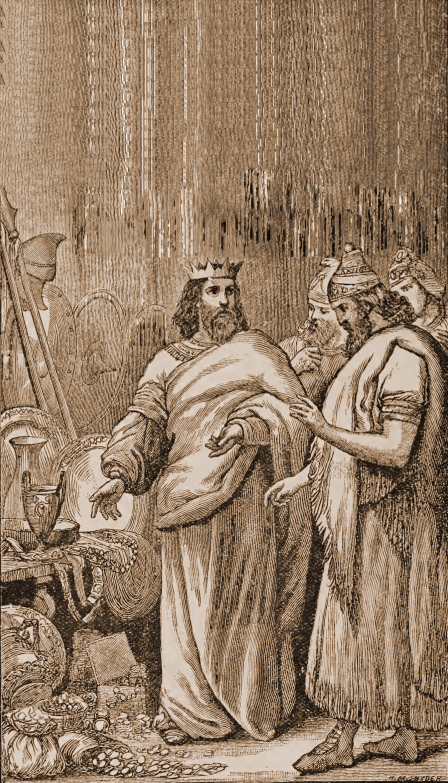
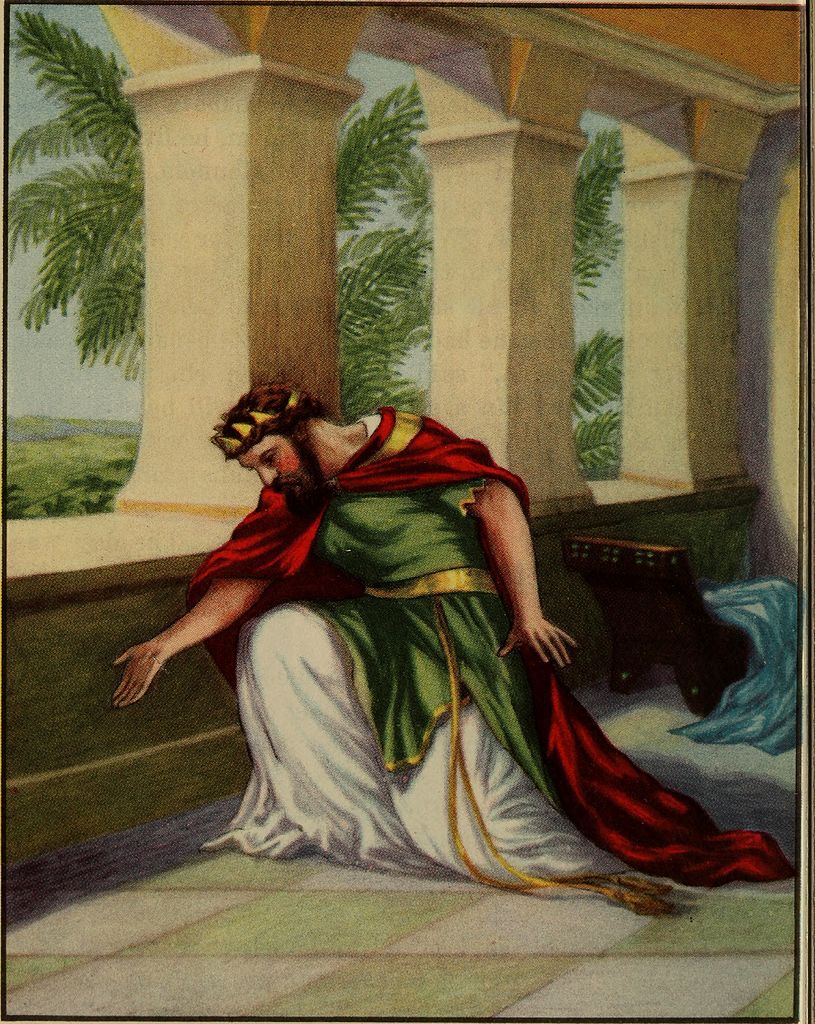
The kingdom of Israel was a great and mighty people thousands of years ago. But when they forsook God and went after the gods of the heathen nations around them, this all changed. It was not the first time such a departure had occurred (and sadly not the last), but this time, the kingdom split in two. The northern part remained as ‘Israel’ and the southern part was called ‘Judah.’ The southern kingdom of Judah remained more inclined to follow God and His commandments, albeit at times rather loosely, than Israel, the northern part.
The problem being addressed here began when Shalmaneser, king of the mighty and vast region of Assyria, conquered the whole northern kingdom. This was basically the end of Israel as a nation, at least for the time being. But Assyria’s plans for acquisitions did not quit there. Shalmaneser’s successor, Sennacherib, pressed forward with plans to conquer Judah also.
Hezekiah–the Reformer
Thankfully, Hezekiah, a God-fearing young man, was made king of Judah. Unlike previous leaders, he refused to allow idols to be worshipped or to remain in the land. “And he did that which was right in the sight of the Lord, according to all that David his [fore-] father did. He removed the high places, and brake the images, and cut down the groves, and brake in pieces the brasen serpent that Moses had made: for unto those days the children of Israel did burn incense to it: and he called it Nehushtan. He trusted in the LORD God of Israel; so that after him was none like him among all the kings of Judah, nor any that were before him” (2 Kings 18:3-5). Then, because of his obedience, “…the Lord was with him; and he prospered whithersoever he went forth: and he rebelled against the king of Assyria, and served him not” (2 Kings 18:7).
Hezekiah desired to rid his nation of idolatry, but he was young and inexperienced, both spiritually and militarily.
Therefore, his first attempt to withstand an attack by the Assyrians was not very successful. “Now in the fourteenth year of king Hezekiah did Sennacherib king of Assyria come up against all the fenced cities of Judah, and took them. And Hezekiah king of Judah sent to the king of Assyria to Lachish, saying, I have offended; return from me: that which thou puttest on me will I bear. And the king of Assyria appointed unto Hezekiah king of Judah [the obligation to pay tribute of] three hundred talents of silver and thirty talents of gold. And Hezekiah gave him all the silver that was found in the house of the Lord, and in the treasures of the king’s house. At that time did Hezekiah cut off the gold from the doors of the temple of the Lord, and from the pillars which Hezekiah king of Judah had overlaid, and gave it to the king of Assyria.” (2 Kings 18:13-16).
A Dangerous Compromise
When Sennacherib took the fenced cities of Judah, Hezekiah basically surrendered to him, rather than seeking the Lord about what to do. Therefore, Sennacherib ordered Hezekiah to pay him a sizable sum in silver and gold. Some sources say that the Assyrian king actually expected even more than that, including his daughters, concubines, musicians, elephant hides, and so on. Hezekiah even took the gold off the doors of the Temple of God, along with all the pillars. He never inquired of the Lord in all of this, even when he planned to remove the silver and gold from His house.
As we will see, whenever the enemy demands one thing and we give in, he doesn’t quit there—he is always going to expect more.
And when he has been given an inch, then a mile will definitely be taken. Instead of accepting Hezekiah’s payment and being satisfied, the Assyrian monarch also dared to demand Jerusalem, the city of God, and capital of the kingdom of Judah. Not only was Sennacherib going against Hezekiah and the people at this point, but he was now attacking God Himself!
The Enemy’s Intimidation
This time, the Assyrian king sent some of his top men to belittle and intimidate Hezekiah and his people. Over and over, these individuals switched back and forth, first accusing the people of depending on Hezekiah for their victory, then neighboring Egypt, and finally God Himself. The accusers continually attempted to erode the confidence of God’s people in an effort to turn them against their leaders and allies.
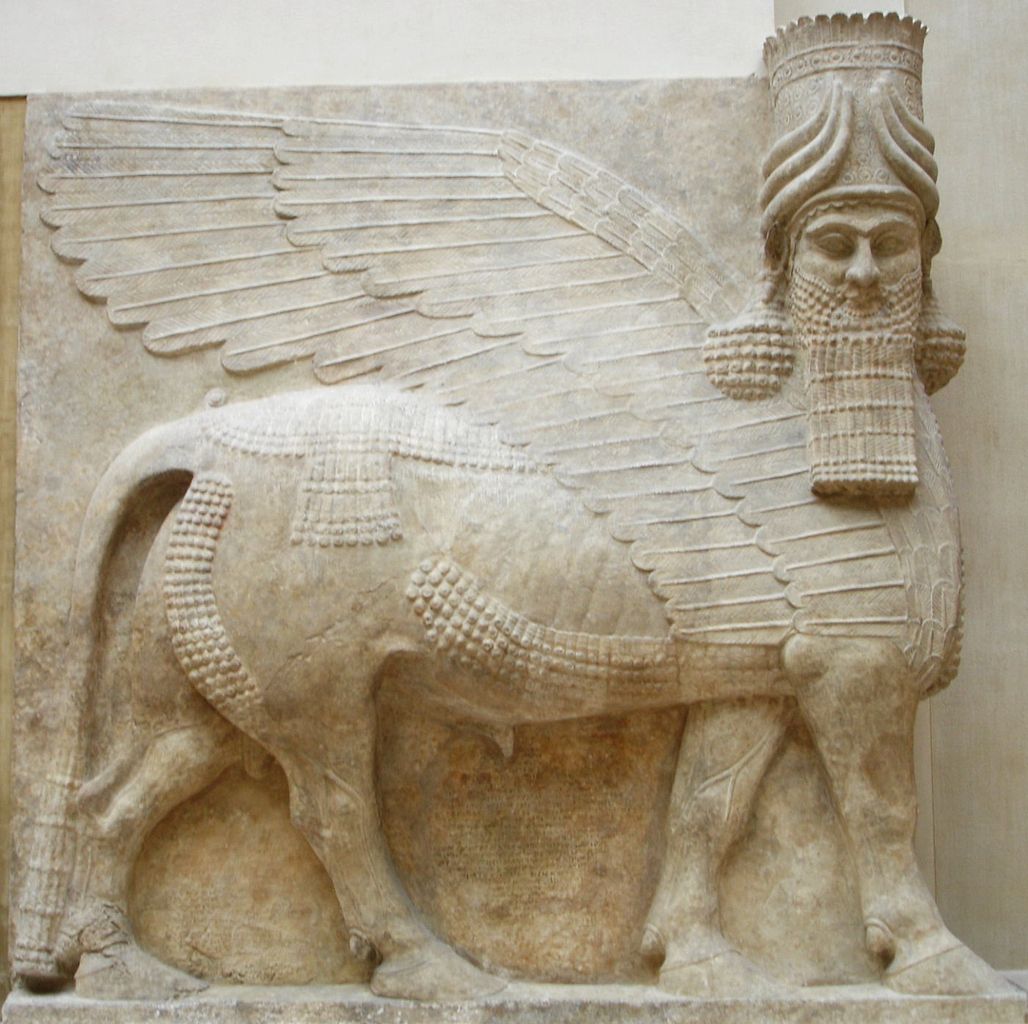
Since the Assyrians considered the Lord God Almighty as simply another god of the land, they began declaring how futile it was to put their trust in Him. They reminded them that Hezekiah himself had arranged for the removal of all the altars and high places, and had made them worship before just one altar in Jerusalem.
The gods of the other nations Assyria had conquered had not been able to stop them from invading and conquering, so they could not imagine that Judah’s God would do any better.
“But the people [of Judah] held their peace, and answered him not a word: for the king’s commandment was, saying, Answer him not” (2 Kings 18:36). In spite of their strong accusations and threats, God’s people dwelling in Judah remained obedient and did not give in.
Hezekiah’s Faith Tested
Hezekiah was now put to the test: would he give in again to their demands like he had done previously? “And it came to pass, when king Hezekiah heard it, that he rent his clothes, and covered himself with sackcloth, and went into the house of the LORD” (2 Kings 19:1 emphasis added). Unlike his predecessors, this time he went before the Lord and did not succumb to the enemy.
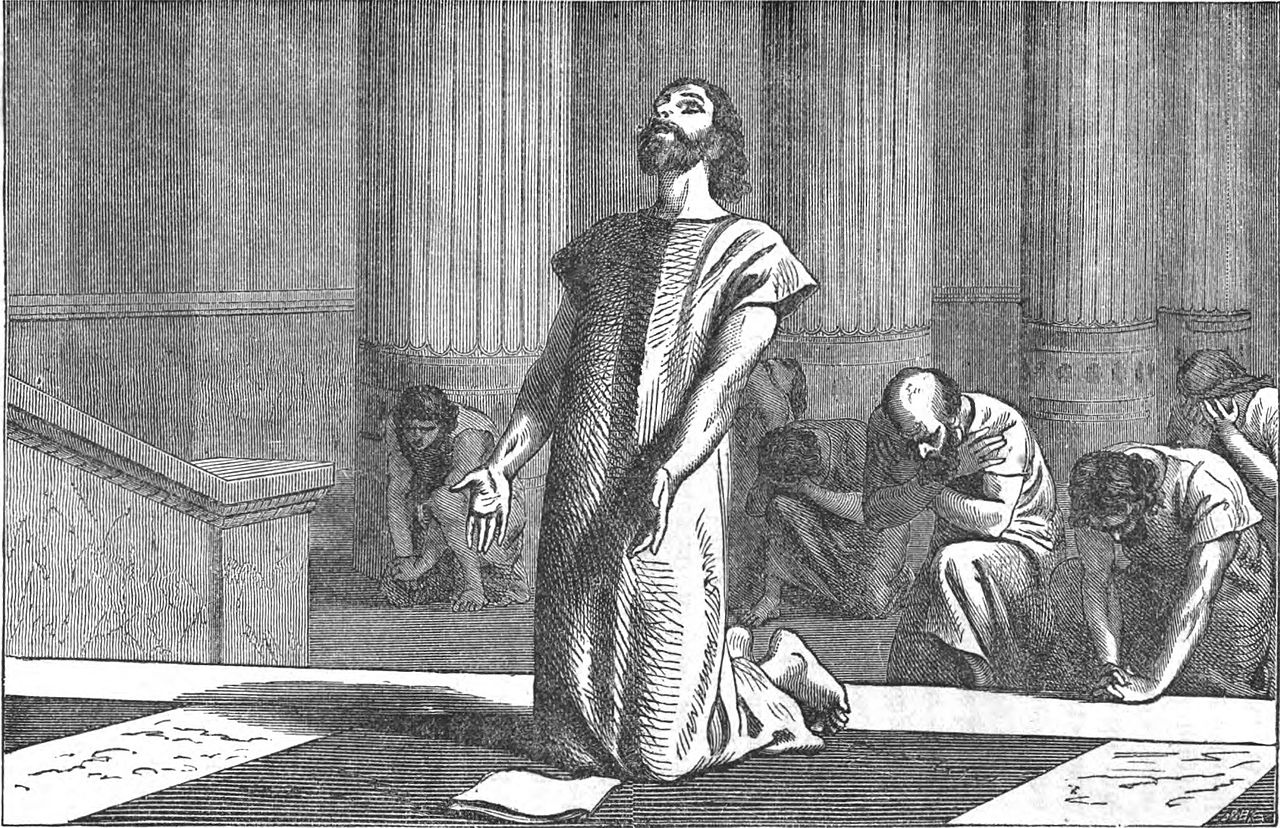
God responded to Hezekiah’s plea through the prophet Isaiah: “Thus shall ye say to your master, Thus saith the Lord, Be not afraid of the words which thou hast heard, with which the servants of the king of Assyria have blasphemed me. Behold, I will send a blast upon him, and he shall hear a rumour, and shall return to his own land; and I will cause him to fall by the sword in his own land” (2 Kings 9:6,7).
And not long after this the word of the Lord came to pass, all who were persecuting the people of God were forced to return to Assyria.
Hezekiah’s Second Test
But this victory was only short-lived, since God knew more refining was needed in Hezekiah’s faith. This time, Assyria sent more messengers, who again blasted Hezekiah for trusting in God and believing that Jerusalem would be delivered from the mighty Assyrians. They reminded the people of Judah about all the other cities and kings they had conquered, implying how foolish it was to believe that Judah would be spared.
But once again, “Hezekiah prayed before the Lord, and said, O Lord God of Israel, which dwellest between the cherubims, thou art the God, even thou alone, of all the kingdoms of the earth; thou hast made heaven and earth. Lord, bow down thine ear, and hear: open, Lord, thine eyes, and see: and hear the words of Sennacherib, which hath sent him to reproach the living God. Of a truth, Lord, the kings of Assyria have destroyed the nations and their lands, and have cast their gods into the fire: for they were no gods, but the work of men’s hands, wood and stone: therefore they have destroyed them. Now therefore, O Lord our God, I beseech thee, save thou us out of his hand, that all the kingdoms of the earth may know that thou art the Lord God, even thou only” (2 Kings 19:15-19).
God Steps Into the Picture
After Hezekiah prayed this time, God let the Assyrians know that He had had enough when He said “Whom hast thou reproached and blasphemed? and against whom hast thou exalted thy voice, and lifted up thine eyes on high? even against the Holy One of Israel…But I know thy abode, and thy going out, and thy coming in, and thy rage against me. Because thy rage against me and thy tumult is come up into mine ears, therefore I will put my hook in thy nose, and my bridle in thy lips, and I will turn thee back by the way by which thou camest” (2 Kings 19:22, 27-28). He then gave Hezekiah a promise: “Therefore thus saith the Lord concerning the king of Assyria, He shall not come into this city, nor shoot an arrow there, nor come before it with shield, nor cast a bank against it. By the way that he came, by the same shall he return, and shall not come into this city, saith the Lord. For I will defend this city, to save it, for mine own sake, and for my servant David’s sake” (2 Kings 9:32-34).
After not even twenty-four hours had elapsed, one hundred and eighty-five thousand of the Assyrian army had been killed!
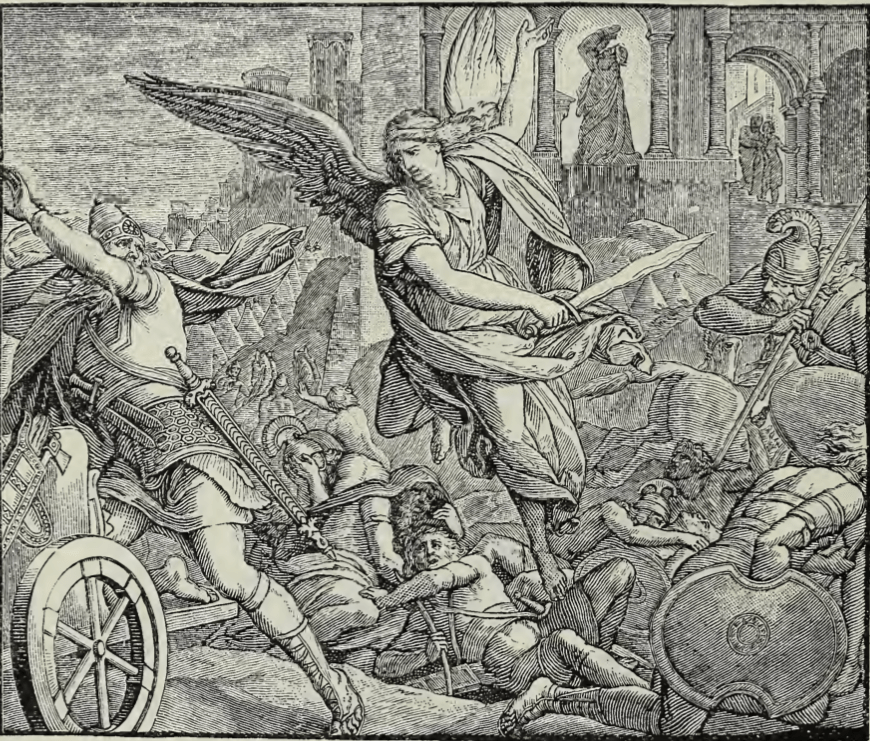
Did God’s Word that He gave to Hezekiah prove to be true? “And it came to pass that night, that the angel of the Lord went out, and smote in the camp of the Assyrians an hundred fourscore and five thousand: and when they arose early in the morning, behold, they were all dead corpses. So Sennacherib king of Assyria departed, and went and returned, and dwelt at Nineveh. And it came to pass, as he was worshipping in the house of Nisroch his god, that Adrammelech and Sharezer his sons smote him with the sword: and they escaped into the land of Armenia…” (2 Kings 19:35-37). After not even twenty-four hours had elapsed, one hundred and eighty-five thousand of the Assyrian army had been killed! The King of Assyria was also murdered by his own sons in the house of his god. His own god could not even save him from destruction, much less his army.
When Hezekiah tried to resolve the situation in his own strength and effort, he did not succeed.
Victory Comes Through Trust in God
When Hezekiah tried to resolve the situation in his own strength and effort, he did not succeed. In fact, there really was no way that he could, even if he had had the assistance of the Egyptian army or of any other. But when he humbly went before God, pleading his case to Him, Hezekiah found victory over a humanly impossible situation. It was only after Hezekiah surrendered himself to God and turned the problem over to Him that one man was able to stand up against the most powerful enemy army of his time and prevail!
[Image credits: All images public domain]

